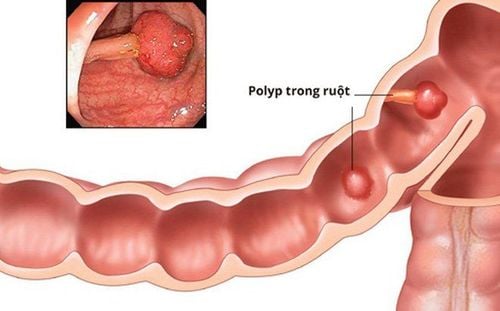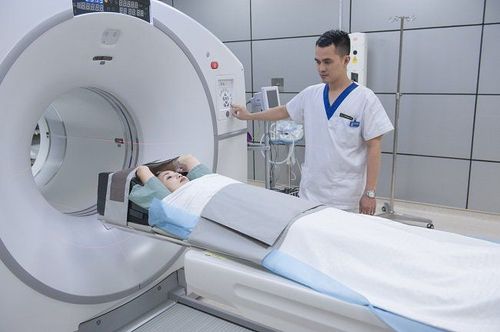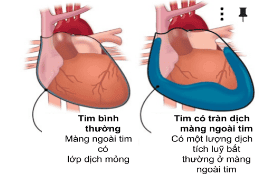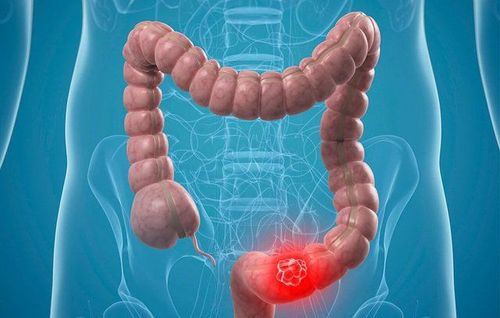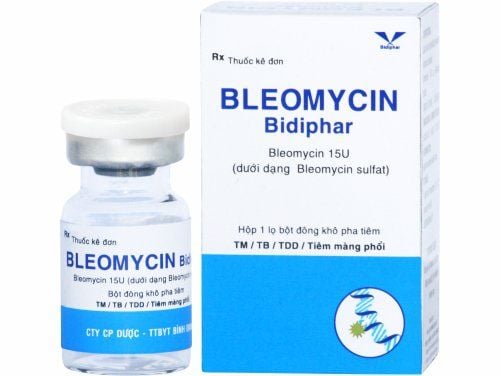This is an automatically translated article.
The article was written by Doctor, Internal Gastroenterologist Bui Xuan Truong - Department of General Internal Medicine - Vinmec Times City International General Hospital1. What are colon polyps?
Colon polyps is a medical term used to refer to neoplasms created by excessive tissue proliferation that develop into tumors that protrude into the colon lumen. Most colon polyps are benign, not cancerous. Colorectal polyps are quite common, especially in people over the age of 50.2. Classification of colon polyps
There are many different types of colon polyps:Morphology: Colon polyps can have a stalk (like a mushroom) or no stalk. In terms of number: there may be one polyp or many colon polyps. In terms of size: polyps range in diameter from a few millimeters to several centimeters. Some types of colon polyps run in families or are inherited. In these cases, there are often accompanying pathological manifestations in other organs - other parts of the body. In contrast, some types of polyps appear as a result of genetic mutations, but are not inherited. However, people who have a close family member with colon polyps have a higher risk of developing the disease.
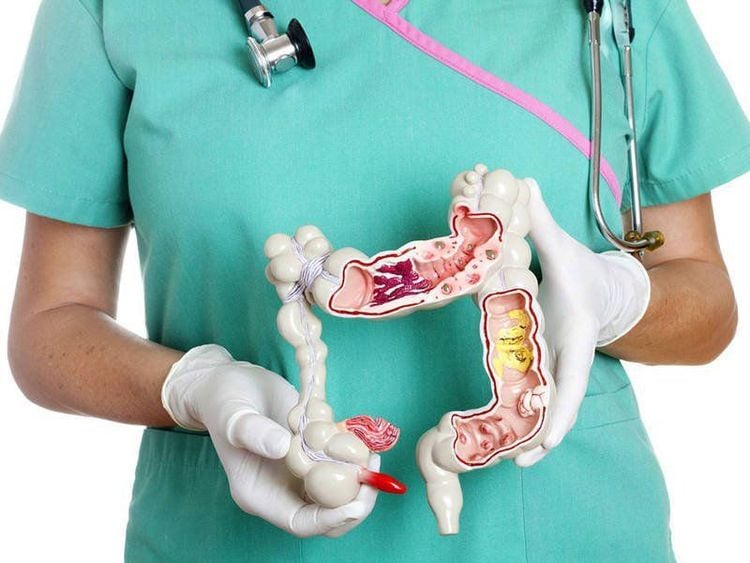
Polyp đại tràng có nhiều loại khác nhau
3. Colon polyp symptoms
Colon polyps have poor symptoms, most common symptoms in people with polyps larger than 2cm in diameter or with many polyps such as stool disturbances, persistent diarrhea or abdominal pain.4. How dangerous are colon polyps?
The most dangerous risk of colon polyps is the development of malignant polyps into colon cancer, but not all types of colon polyps carry the risk of malignancy into cancer.5. Diagnosis of colon polyps
There are many methods to diagnose colon polyps:Colonography with contrast enema. Double Contrast Scan Computerized tomography (CT Scan), nuclear magnetic resonance imaging (MRI) or virtual colonoscopy However, the current best method is colonoscopy with a flexible scope. Colonoscopy with flexible bronchoscope in addition to diagnosing with or without polyps, conducting biopsies to diagnose histopathology - cytology to see if the polyp organization is benign or cancerous, through flexible bronchoscopy can Polyps can be treated (colon polypectomy), which is an uncomplicated, low-cost treatment that doesn't require an inpatient stay. With generations of magnifying endoscopy - combined with staining, endoscopy with narrow light spectrum (NBI endoscopy)....... It is possible to evaluate colon polyps as benign or very malignant. good and capable of diagnosing the disease at a very early stage.
6. Who should be screened for colon polyps?
Although fairly common, not everyone needs screening for colon polyps equally. Those who need to be screened include:Age over 50 Previous history of colon polyps Having a close family member (father, mother, brother, sister) with colon polyp Having a close family member (father) , mother, brother, sister) has colon cancer Has a habit of eating a lot of meat and fatty foods Smoking Smoking a lot of alcohol and alcoholic beverages Being overweight – obese Being inactive or having a job that is very sedentary . When you have colon polyps, after polypectomy, based on the histology of polyps, personal medical history and family history, the doctor will give you advice on the appropriate time interval. to monitor and screen the disease, to ensure that the disease is not missed but without wasting time and economy.
At Vinmec International General Hospital, the combination of a modern, synchronous flexible endoscopic system with high resolution - endoscopy with narrow light frequency range - endoscopy with staining and endoscopic procedures Standard colonoscopy combined with good anesthesia, therefore, is very effective in endoscopic diagnosis and treatment of colon polypectomy.
Treatment of colonic polypectomy through flexible endoscopic tube at Vinmec International General Hospital is carried out in accordance with the standard technical process of the Japanese and international flexible endoscopic mucosalectomy, ensuring effective treatment and achieve a very high level of safety for patients.
See also:
Overview of colorectal polyps Vinmec successfully operated a pediatric patient with complex colon polyp Treatment methods for colorectal cancer Nutrition for patients with colorectal cancer




